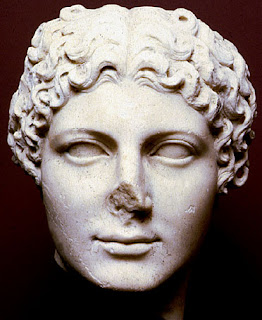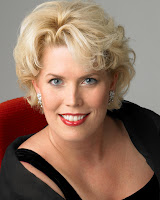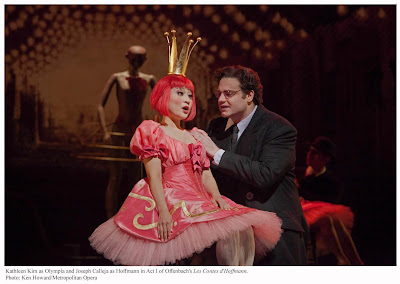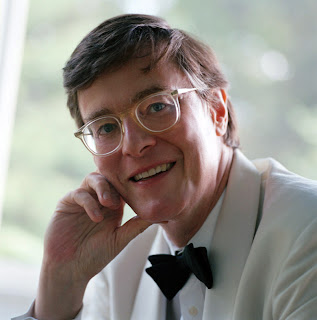Caroline Worra Kathleen Kim
Caroline was a strong singer who sang with strong passion Kathleen Kim, a petite Korean soprano was most definately the star of the performance. She sang with purity, coloratura, humor and dazzle. Ms. Kim had previously sung at the Metropolitan Opera in the Tales of Hoffmam with Joseph Calleja and Anna Netrebko, where she played Olympia, the wind-up doll.
The story per se is a convoluted story of greed, deception and motives to place people in power of the Roman Empire. This production was marvelous at portraying the twists and turns of misguided lovers. The support of the various male roles as countertenors was unusual in their stylistic humor. Some of this including hiding under Poppea's bed to elude competing suitors was simply hysterical in its comedic overlay.
Agrippina's Family: Julia Agrippina was the daughter of Germanicus and Agrippina the Elder, making her a sister of Emperor Caligula. In A.D. 28, Agrippina married Gnaeus Domitius Ahenobarbus who died in A.D. 40. During this marriage, she produced a son who would become the Emperor Nero.
Agrippina's Later Marriages: Agrippina married her second husband, Gaius Sallustius Crispus Passienus, in 41. She married the Emperor Claudius in A.D. 49 and persuaded Claudius to adopt her son Nero as his heir in the following year.
Agrippina' Other Great Claim to Fame: Early historians accused Agrippina of murdering Claudius. Following Claudius' murder, the 17-year-old Nero came to power, with Julia Agrippina the Younger as regent and Augusta.
Agrippina's power waned. Nero sent her into exile. Then, after a botched attempt to kill her, Nero had his mother murdered.
In the end though, everyone dies by suicide in this portayal as indicated in the Epiologue to thunderous applaus by the audience. Much credit should go to the orchestra and the Harpsichord player who supported the entire opera. Even though it appeared to be amplified, it provided an underpinning to the production. Hanel's opera is quite different from Verdi, Donezetti, Bellini, Bizet or Massenet in that there are long stretches of dialogue or recititative rather than lyrical arias that last long after the performance. Handel compensates for this by intriguing drama and counterpoint among the protagonists. It is wonderful opera and should be enjoyed by all. The use of supertitles portrayed on two large LCD screens help draw the listener into the complexities of the dialogue. There were occasional examples of overacting which only served to heighten the humor. The countertenor voice, previously sung by castrati added much value to their roles as buffons in this everlasting farce. Occasional lapses in the falsetto range were largely of no consequence to the overall singing as all the performers easily masterred projecting over the orchestra. The costumes were updated and elegant, especially those worn by Kathleen Kim as Poppea. She notably wore very high stiletto heels as she is quite petite. A take-home message to all singers is never underestimate the power of projecting your voice. Ms Kim was a great example that "Great Things Come in Small Packages"
This is a performance to be enjoyed by all. I hope that future performances will fill the house as Opera appears to be alive and well in Boston.













